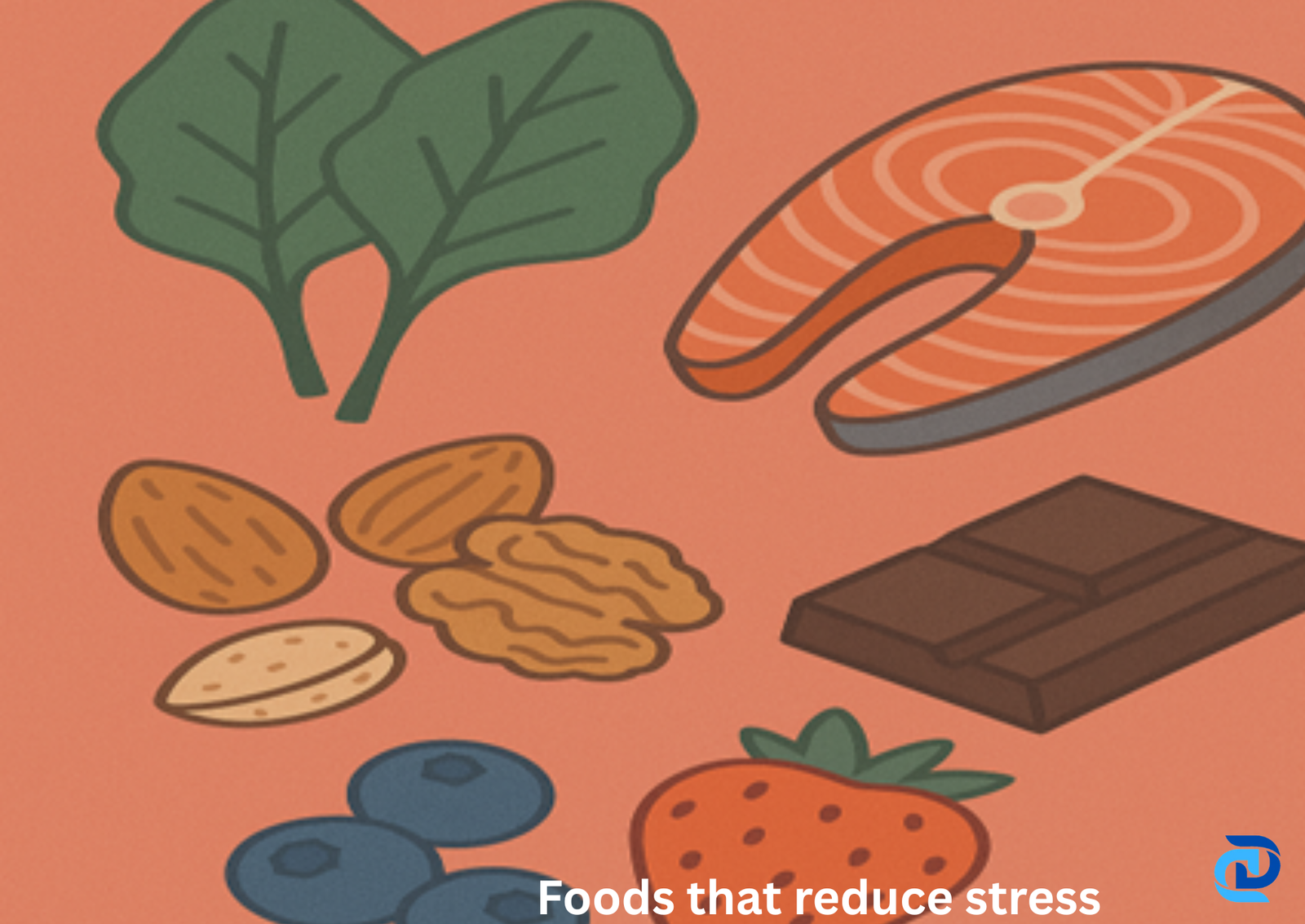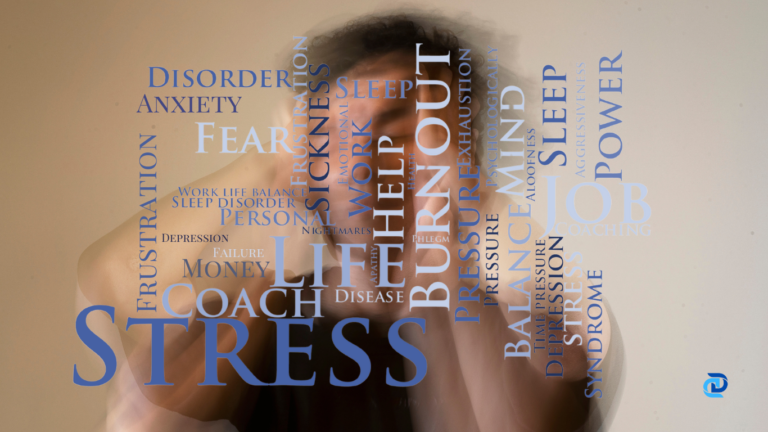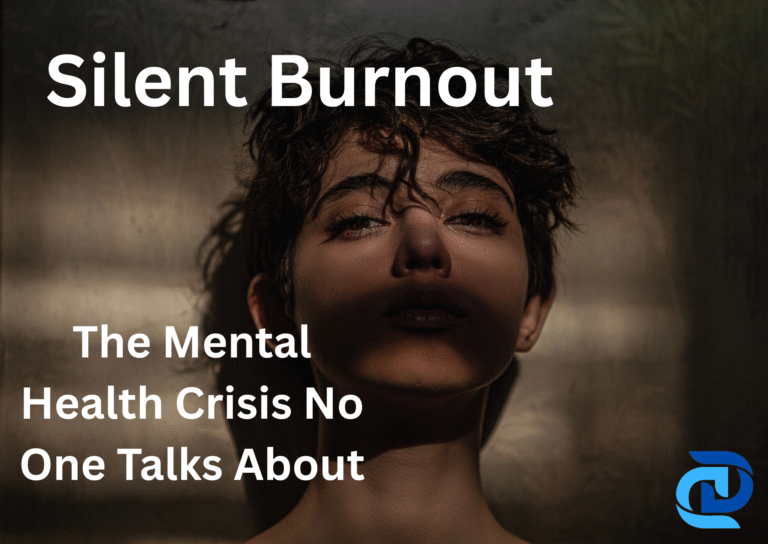10 Daily Stress Management Techniques That Actually Work

Stress is a normal reaction to the pressures of daily life. Whether it is due to work deadlines, family obligations, money worries, or personal challenges, everyone will experience stress at some time. While a bit of stress can be beneficial encouraging us to act or achieve long-term stress can have serious health consequences such as anxiety, high blood pressure, sleep problems, and heart disease.
The good news is that you don’t have to live in a constant state of tension. By incorporating a few simple, science-backed techniques into your daily routine, you can learn how to manage stress effectively and lead a more peaceful, productive life.
Here are 10 tested stress management techniques you can use today to feel better physically, mentally, and emotionally.
1. Start Your Day with Deep Breathing
The way you begin your morning can set the tone for your entire day. Instead of rushing into tasks or immediately reaching for your phone, take a few minutes to center yourself with deep breathing exercises.
Deep breathing works by slowing your heart rate, lowering blood pressure, and calming the mind. This technique activates the body’s relaxation response, reducing feelings of anxiety or overwhelm.
Try this simple routine:
- Inhale deeply through your nose for 4 seconds
- Hold your breath for 4 seconds
- Exhale slowly through your mouth for 4 seconds
- Repeat for 5–10 minutes
This simple method can help you relieve stress naturally and feel more focused and grounded throughout the day.
2. Practice Mindfulness Meditation
Being mindful is focusing entirely on what you’re doing, disregarding outside distractions and passing judgment. Every morning, even for ten minutes, engaging in mindfulness exercises can help clear the mind and keep stress from getting out of control.
Being attentive can be achieved by sitting quietly, paying attention to your breathing, watching your thoughts without responding, or even just being mindful while doing everyday chores like drinking tea or cleaning your teeth.
A few advantages of mindfulness are:
- Reduced anxiety and desperation
- Increased focus
- Enhanced control over emotions
Mindfulness is one of the most accessible and effective natural tension relief methods, and it costs nothing but your attention.
3. Move Your Body to Reduce Stress
Physical activity is one of the most effective ways to combat mental pressure. Exercise increases the production of endorphins chemicals in the brain that act as natural mood boosters.
You don’t need to do intense workouts to see the benefits. Even light activities like walking, yoga, dancing, or stretching can have a major impact on reducing tension levels.
Try adding these stress-busting movements to your routine
- 20-minute brisk walk in the morning or evening
- 15 minutes of home yoga or stretching
- Weekend hiking or cycling sessions
Especially if you’re dealing with work-related pressure, movement can help release physical tension and refresh your mind.
4. Eat Foods That Reduce Stress and Anxiety
Your emotional state can be greatly impacted by the food you consume. Sugar, coffee, and processed foods may cause stress, while other foods can naturally comfort your nervous system.
Here are some foods that help reduce tension and anxiety:
- Rich in magnesium are leafy vegetables like spinach and kale.
- Fatty fish and salmon are rich in omega-3s.
- Nuts (walnuts, almonds) are a great source of good fat.
- A berry’s abundance of antioxidants
- Serotonin synthesis is increased by dark chocolate.
Include these foods in your meals on a regular basis to help maintain brain function and reduce daily pressure.

5. Limit Screen Time and Digital Overload
You may not even be aware of how much stress constant notifications, incessant scrolling, and information overload can cause. Overusing screens can cause sleep disturbances and overstimulation of the brain, particularly right before bed.
Try these tips to reduce digital stress
- Disable unnecessary alerts
- Decide when to stop using screens, especially an hour before bed.
- Instead of using screens, read or keep a notebook.
- When you are working or sleeping intently, use “Do Not Disturb” mode.
You can feel less mentally weary and more in control when you give your brain a vacation from technology.
6. Get Enough Sleep Every Night
Sleep is a powerful stress-reducer. When you’re sleep-deprived, your brain struggles to regulate emotions, manage tasks, and respond to daily challenges. Over time, poor sleep habits can lead to chronic stress and burnout.
Aim for 7–9 hours of quality sleep each night. To improve your sleep:
- Create a consistent bedtime routine
- Avoid caffeine late in the day
- Make your bedroom cool, dark, and quiet
- Use calming rituals like reading or meditating
Good sleep helps you wake up feeling refreshed and more resilient against daily stressors.
7. Stick to a Daily Routine
Structure provides stability. When your day is predictable, your brain devotes less energy to worrying about what’s coming next. Developing a daily routine reduces decision fatigue, increases productivity, and facilitates stress management.
Key elements of a healthy routine:
- Establish wake-up and bedtime times
- Create a schedule for work, breaks, and meals
- Schedule brief periods of relaxation or movement
- Utilize a planner or to-do list to stay organized
Even tiny habits that are done every day can result in significant changes in your mood.
8. Talk to Someone You Trust
Keeping our emotions to ourselves can sometimes lead to tension. It can be very helpful to talk to someone you trust, whether that person is a friend, lover, or therapist. Simply expressing your thoughts can make you feel less isolated and more supported.
If your mental pressure is affecting your daily life, it may be time to seek help for nervous strain from a licensed mental health professional. Therapy isn’t just for crisis, it is a tool for growth, clarity, and emotional strength.
9. Practice Gratitude Every Day
Gratitude allows you to shift your attention from what’s not working to what is working. Practiced daily, it reprograms your brain to see the good in life, which automatically decreases stress and increases happiness.
Try this simple gratitude habit:
- Write down 3 things you’re thankful for each night
- Think about small victories or little pleasures (a good meal, a nice word)
- Say thank you more frequently
This habit takes only a few minutes but can change your thinking over time.
10. Establish Boundaries and Learn to Say No
Taking on too much is a major contributor to chronic psychological fatigue. Overcommitting depletes your energy, whether it’s accepting every request or staying up late every night.
You can maintain your time, mental well-being, and peace of mind by developing the ability to say “no.” Establish limits on your relationships, workload, and time. It is self-care, not selfishness.
Simple boundary tips:
- Don’t respond to non-urgent messages after hours
- Delegate tasks when possible
- Communicate your limits kindly but clearly
- Creating space for yourself allows you to show up better in all areas of your life.
Conclusion
Emotional overload may be a part of life, but it doesn’t have to control your life. By implementing these 10 stress management techniques, you can create daily habits that support your mental, emotional, and physical well-being. Start small choose two or three techniques to begin with and build from there. Over time, these small shifts can lead to a calmer, more balanced, and healthier you.
If stress feels overwhelming, remember that help is always available. You deserve peace of mind and a life that feels manageable and fulfilling.
FAQs
1. What are the common signs of chronic stress?
Common symptoms of chronic stress include constant fatigue, irritability, trouble sleeping, headaches, muscle tension, anxiety, and difficulty concentrating. If these persist over time, it may be a sign that mental pressure is affecting your health.
2. Can stress really lead to serious health problems?
Yes, prolonged stress can lead to severe health issues such as high blood pressure, heart disease, diabetes, depression, and a weakened immune system. Managing nervous strain early is crucial to prevent long-term complications.
3. What is the most effective stress relief technique?
There’s no one-size-fits-all answer, but many people find techniques like deep breathing, mindfulness meditation, physical activity, and regular sleep most effective. Experimenting different methods can help you find what works best for you.
4. How long do stress management techniques take to work?
Some techniques, like deep breathing or a quick walk, can provide instant relief. Others, such as yoga or cognitive behavioral techniques, may take a few weeks of regular practice to show noticeable improvements.
5. Can lifestyle changes really reduce emotional overload
levels?
Absolutely. Simple changes like improving your diet, getting more sleep, setting boundaries, staying physically active, and practicing gratitude can significantly reduce your stress and improve overall quality of life.



